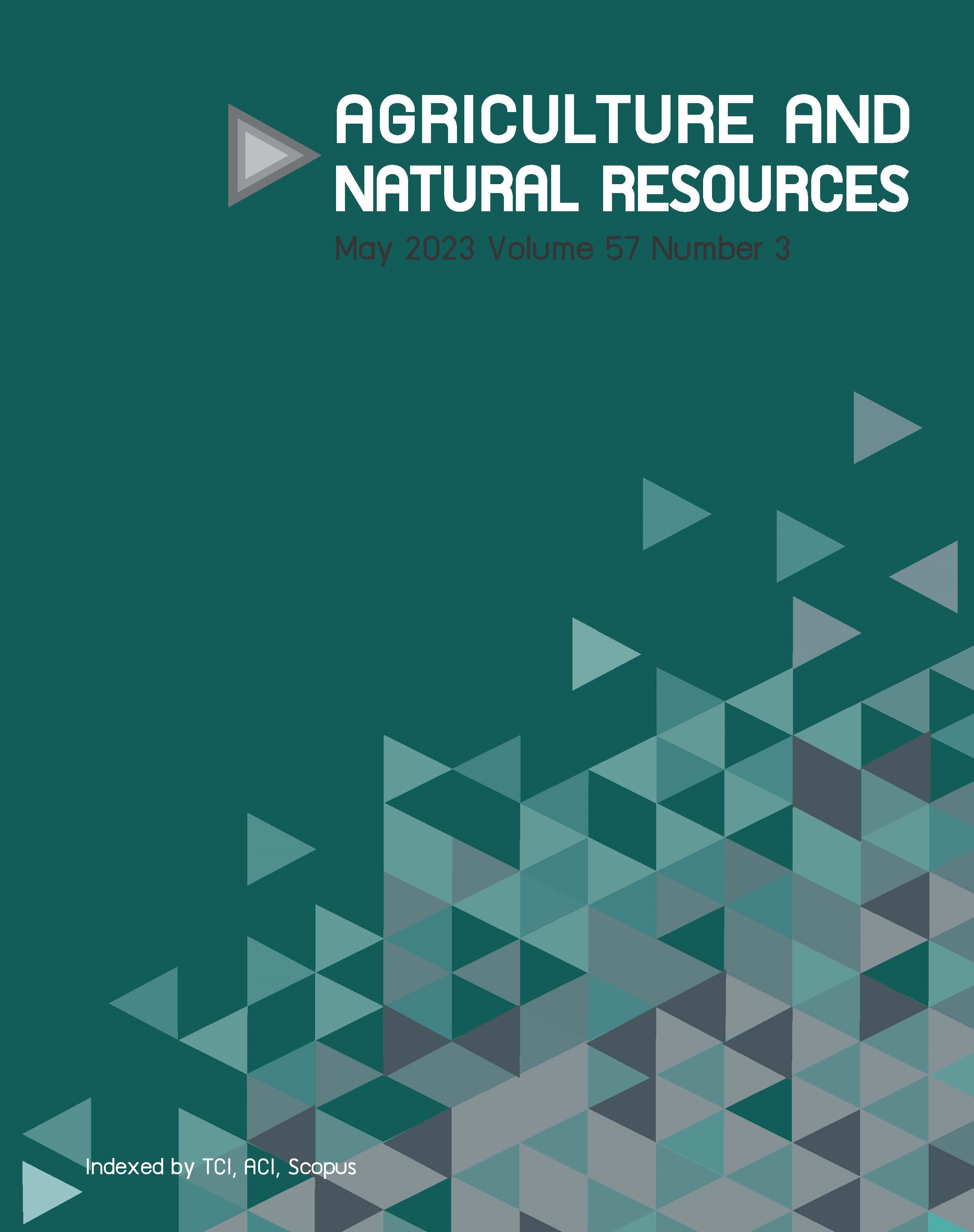Effects of crocodile (Crocodylus siamensis) oil and palm oil on leptin-activated signal transducer and activator of transcription 3 signaling pathway and hepatic fat accumulation in rats
Keywords:
Crocodile oil, Leptin, Neuropeptide Y (NPY), Palm oil, Signal transducer and activator of transcription 3 (STAT3)Abstract
Importance of the work: Although fat is an essential nutrient, its accumulation is associated with chronic diseases in animals and humans. Different types of oil differently alter food intake and energy expenditure through regulation of leptin signaling.
Objectives: To investigate the effect of palm oil (PO) and crocodile oil (CO) consumption on leptin signaling in rats.
Materials & Methods: Male Wistar rats (7 rats/group) were divided into control, PO and CO groups. The rats were treated with the oils or water (control) supplied using oral gavage once daily (3 mL per kg body weight) for 7 wk.
Results: The CO group had significantly (p < 0.01) lower food intake than the control group. The calculated total area of fat droplets in the liver tissues of the CO group was significantly (p < 0.01) lower than for the PO group. The increased phosphorylation of the signal transducer and activator of transcription 3 accompanied by hunger suppression with the attenuation of Neuropeptide Y expression was higher in the CO group.
Main finding: CO lowered hunger expression and hepatic fat accumulation due to the increased promotion of leptin sensitivity compared to PO. Further study should investigate CO consumption in other animals for further alternative uses in medical therapy.
Downloads
Published
How to Cite
Issue
Section
License
Copyright (c) 2023 Kasetsart Universityonline 2452-316X print 2468-1458/Copyright © 2022. This is an open access article under the CC BY-NC-ND license (http://creativecommons.org/licenses/by-nc-nd/4.0/),
production and hosting by Kasetsart University of Research and Development Institute on behalf of Kasetsart University.







